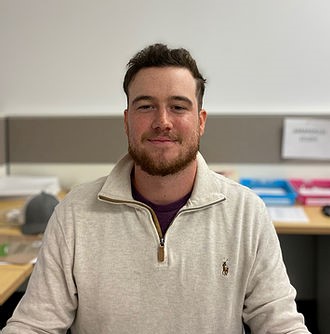Graduates
 The MSc and
The MSc and
Graduate students in these programs will have opportunities to conduct cutting-edge research on diverse topics related to the application of psychology to the justice system, such as:
- antisocial personality and psychopathy
- eyewitness identification
- geographic profiling
- investigative interviewing
- juvenile offenders
- lie detection
- sex offenders
- wrongful conviction
- MSc in Forensic Psychology
- PhD in Forensic Psychology
- Student resources
- Research supervision areas
- Current MSc students
- Current PhD students
- Recent graduates
The Master of Science (MSc) in Forensic Psychology combines disciplinary and specialized study in the field, study in research methods and statistics, and applied to learning experiences to prepare students to work in a variety of settings. Specifically, the program will prepare students for careers related to:
- Administration in provincial and federal programs.
- Advertising and marketing.
Behavioural science and statistical research in government organizations.- Design and evaluation of community programs.
- Research and/or teaching in college and university settings.
- Research and practice in
behavioural science crime units within law enforcement. - Research in mental health institutions, hospital settings, justice-related institutes, correctional facilities, the pharmaceutical industry, and the educational entertainment industry.
- Trial consulting.
Admission
Prospective students must hold a four-year undergraduate degree or equivalent in Psychology or a related field (e.g. Neuroscience, Computer Science, Biology, Criminology) at a recognized institution. Students with both Bachelor of Arts and Bachelor of Science degrees are encouraged to apply.
Please note that we are an experimental psychology program, training the next generation of psycho-legal and forensic psychology researchers. We do not offer doctoral programs in clinical psychology, clinical neuropsychology, counselling psychology or school psychology. As a result, accreditation by the Canadian Psychological Association does not apply.
For more information, visit Forensic Psychology (master's program).
- Administration in provincial and federal programs.
- Advertising and marketing.
Behavioural science and statistical research in government organizations.- Design and evaluation of community programs.
- Research and/or teaching in college and university settings.
- Research and practice in
behavioural science crime units within law enforcement. - Research in mental health institutions, hospital settings, justice-related institutes, correctional facilities, the pharmaceutical industry
and the educational entertainment industry. - Trial consulting.
The program will also allow professionals (e.g. law enforcement officials) to advance in their current fields.
Each year, a small number of undergraduate students may be admitted directly into the
Please note that we are an experimental psychology program, training the next generation of psycho-legal and forensic psychology researchers. We do not offer doctoral programs in clinical psychology, clinical neuropsychology, counselling psychology or school psychology. As a result, accreditation by the Canadian Psychological Association does not apply.
For more information, visit Forensic Psychology (doctoral program).
- See a list of important dates.
- Access the Graduate Academic Calendar.
- Learn more about funding and scholarships.
- See a list of student forms and publications.
- Download the Forensic Psychology Graduate Handbook.
Core Psychology faculty
Faculty |
Research supervision area |
Accepting students |
Contact |
Kimberley Clow, PhD |
|
kimberley.clow@ontariotechu.ca | |
Joseph Eastwood, PhD |
|
joseph.eastwood@ontariotechu.ca | |
Karla Emeno, PhD |
|
karla.emeno@ontariotechu.ca | |
Logan Ewanation, PhD |
|
logan.ewanation@ontariotechu.ca | |
Leigh Harkins, PhD |
|
leigh.harkins@ontariotechu.ca | |
Lindsay Malloy, PhD |
|
lindsay.malloy@ontariotechu.ca | |
Matthew Shane, PhD |
|
matthew.shane@ontariotechu.ca | |
Shannon Vettor, PhD |
|
shannon.vettor@ontariotechu.ca |
Core cross-appointed faculty
Faculty |
Research supervision areas |
Accepting students |
Contact |
Shahid Alvi, PhD |
|
shahid.alvi@ontariotechu.ca | |
Carla Cesaroni, PhD |
|
carla.cesaroni@ontariotechu.ca | |
Sean Forrester, PhD |
|
sean.forrester@ontariotechu.ca |
Associate faculty
Faculty |
Research supervision areas |
Accepting students |
Contact |
Ron Hinch, PhD |
|
||
Steven Downing, PhD |
|
steven.downing@ontariotechu.ca | |
Karla Dhungana Sainju, PhD |
|
karla.dhungana-sainju@ontariotechu.ca | |
Helene LeBlanc, PhD |
|
||
Krystal Martin, PhD |
|
krystal.martin@ontariotechu.ca | |
Thomas McMorrow, PhD |
|
thomas.mcmorrow@ontariotechu.ca | |
Timothy McTiernan, PhD |
|
timothy.mctiernan@ontariotechu.ca | |
Natalie Oman, PhD |
|
natalie.oman@ontariotechu.ca | |
Michele Peterson-Badali, PhD |
|
||
Andrea Slane, PhD |
|
andrea.slane@ontariotechu.ca | |
Arshia Zaidi, PhD |
|
arshia.zaidi@ontariotechu.ca | |
 Jessica Biasin
Jessica Biasin
Jessica is currently pursuing a Master of Science degree in Forensic Psychology under the supervision of Dr. Taylor Heffer in the Developmental Wellbeing (DevWell) Lab. She completed her Honours Bachelor of Science with a specialization in Psychology at the University of Toronto, where she developed a strong foundation in psychological research. Her current research focuses on understanding the development of antisocial personality traits from adolescence through early adulthood. She utilizes a non-linear and continuous assessment approach to capture the dynamic nature of these traits over time. In her ongoing work, Jessica plans to collect data from an undergraduate sample to gain a more nuanced understanding of how antisocial personality traits manifest and evolve within this population. Through her research, Jessica aims to contribute valuable insights into the developmental trajectories of these traits and their implications for psychological well-being.
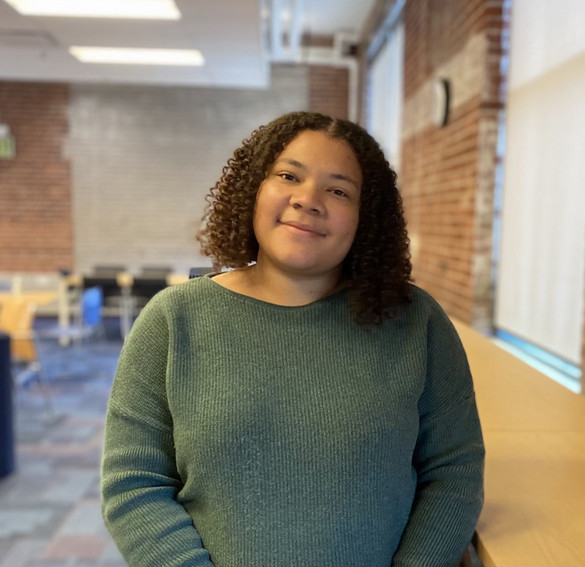
Brianna Hughes
Bria completed her Bachelor of Arts (Honours) in Forensic Psychology here at Ontario Tech University. In her undergraduate thesis, Bria examined the impact of socioeconomic status and adversity on the development of functional brain networks in children. She won an NSERC award to expand this research during her master’s and presented her findings at the Flux 2023 Conference. Bria is currently working towards her master’s in Forensic Psychology under the supervision of Dr. Stojansoki. Her research interests include brain development, intersectionality, adversity and socioeconomic status.
 Corina Picco
Corina Picco
Corina is a MSc student working under the supervision of Dr. Matthew Shane in the Clinical Affective Neuroscience Laboratory for Discovery and Innovation (CANdi Lab). Corina obtained her Bachelor of Arts (Honours) in Forensic Psychology at Carleton University. Her current work focuses on substance abuse, psychopathy, and empathy degradation. Corina plans to implement neuroimaging techniques to further examine the intricacies of substance use and psychopathy’s impact on empathy. Her research interests include substance use disorders, psychopathy, antisociality, and neurocognitive dysfunctions.
 Sydney Spyksma
Sydney Spyksma
Sydney completed her Bachelor of Arts (Honours) here at Ontario Tech University, completing a dual major in Forensic Psychology and Criminology and Justice. During her undergrad, she wrote an undergraduate honours thesis under the supervision of Dr. Joseph Eastwood that examined the efficacy of a virtually self-administered interview; her thesis received the Canadian Psychological Association Certificate of Academic Excellence. Sydney is currently a second-year Master's student working under the supervision of Dr. Lindsay Malloy. Her Masters' project involves interviewing adolescents about past experiences, where she will assess how adolescents engage with the interview process as well as use ground rule instructions. Her goal for this project (and likely future projects) will be to determine best practice interviewing methods or adolescents.
Quintan Crough
Quintan is a PhD student working under the supervision of Dr. Joseph Eastwood in the Applied Law Enforcement Research and Training (ALERT) Laboratory. He received his Bachelor of Arts (Honours) in Psychology from Carleton University and a Master of Science in Forensic Psychology at Ontario Tech University. Quintan’s current research interests include suspect interviewing, rapport-building and memory.
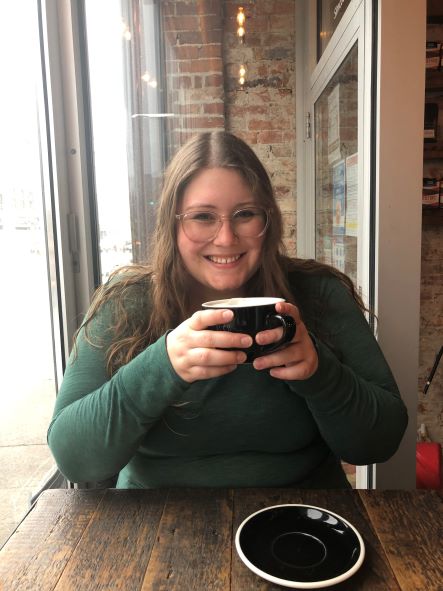 Cassandre Dion Larivière
Cassandre Dion Larivière
Cassandre received her Bachelor of Arts (Honours) in Applied Psychology from Bishop’s University and a Master of Science in Forensic Psychology from Ontario Tech University. She is currently pursuing her PhD and is working under the supervision of Dr. Joseph Eastwood in the Applied Law Enforcement Research and Training (ALERT) Laboratory. Cassandre’s research examines factors that influence the effectiveness of investigative interviews, such as rapport building and virtual interviews, as well as investigative interviews conducted with older adults.
 Karli Hamilton
Karli Hamilton
Karli received her Bachelor of Science (Honours) in Psychology at Acadia University and her Master of Science in Forensic Psychology at Ontario Tech University. She is currently in her third year of her PhD in Forensic Psychology under the supervision of Dr. Kimberley Clow. Her master’s research, under the supervision of Dr. Clow, focused on how perceptions of and willingness to help exonerees was impacted by the emotions expressed by an exoneree in a video discussing his wrongful conviction experience. Karli’s current research is focused on what impacts perceptions of suspiciousness that a crime occurred when a caregiver calls 911 requesting emergency assistance for a child under their care.

Taya Henry
Taya is a fourth-year PhD student in Forensic Psychology under the supervision of Dr. Kimberley Clow. Taya received an Honours Bachelor of Arts in Psychology from the University of British Columbia Okanagan, and a Master of Science in Forensic Psychology from Ontario Tech University. Her master’s research, also supervised by Dr. Clow, focused on the qualitative content of online discussions in response to watching a wrongful conviction media production. Taya’s dissertation research investigates perceptions of jury selection in Canada.
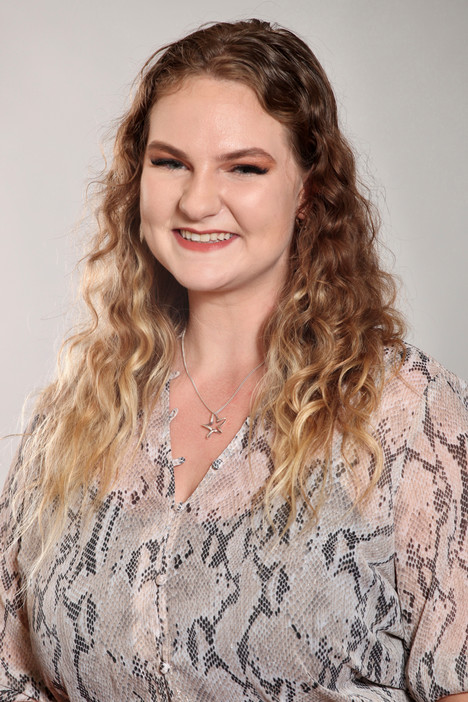 Sarah Kirkpatrick
Sarah Kirkpatrick
Sarah is currently in her first year of the PhD program. She previously completed her Bachelor of Arts (Honours with a minor in Criminology and Justice) and Master of Science in Forensic Psychology here at Ontario Tech University. In her undergraduate thesis, Sarah examined public perceptions of wrongfully convicted individuals. In her master’s thesis, she examined public perceptions of consent and sexual assault in heterosexual and homosexual sexual encounters. Sarah will be continuing her research on consent and sexual assault in her PhD under the supervision of Dr. Karla Emeno and Dr. Shannon Vettor. Her research interests include sexual offending, sexual deviancy, at-risk youth, and forensic assessment.
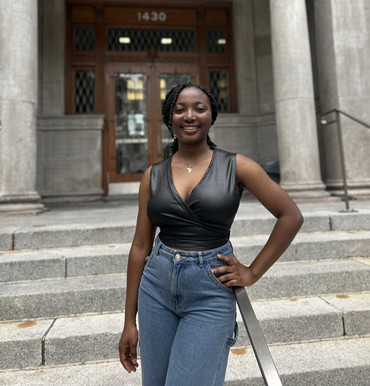 Funmilola Ogunseye
Funmilola Ogunseye
Funmilola Ogunseye is a Ph.D. student under the supervision of Dr. Joseph Eastwood. She completed her Master’s in Forensic Psychology at Ontario Tech University and graduated with a Bachelors in Psychology from the University of Lagos, Nigeria.
Over the years, she developed an interest in the criminal justice system, specifically in the investigative interviewing field. Her Master’s thesis examined self-reported investigative interviewing practices of police officers in Nigeria. She plans to continue research in that line while also exploring the application of evidence-based investigative interviewing techniques in non-WEIRD countries and psychological detention.
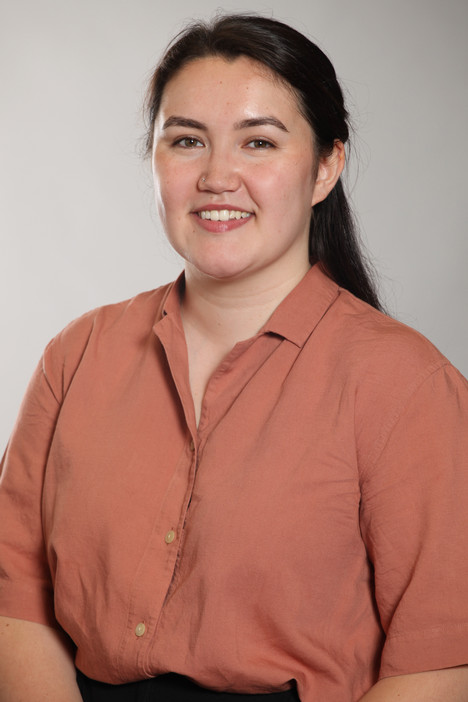 Mari Pullman
Mari Pullman
Mari is a PhD student working under the supervision of Dr. Karla Emeno. She received a BA (Honours) in Psychology with a Major in Criminology from King's University College at Western University and a MSc in Forensic Psychology at Ontario Tech University. Mari generally studies predictive policing and focuses on integrating some existing methods that aim to predict crime hotspots into a mode that can be utilized in applied spheres (e.g., analysts in law enforcement) in an effort to encourage evidence-based policing.
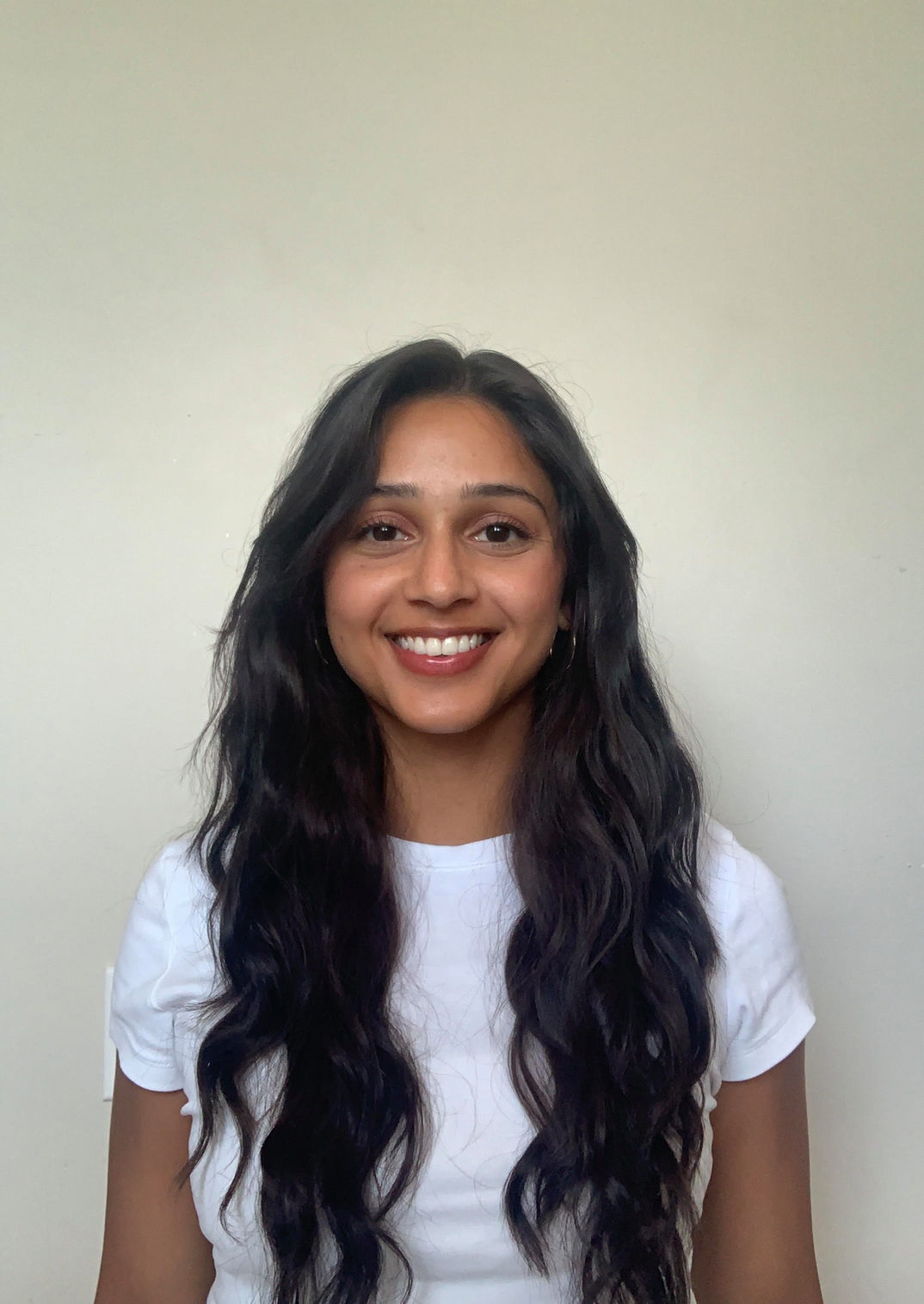 Natalie Rajack
Natalie Rajack
Natalie Rajack is a first year PhD student in Forensic Psychology. She completed her Honours Bachelor of Science degree in Neuroscience at the University of Toronto and her Master of Science in Forensic Science degree at Trent University. After completing her master's degree, Natalie began her career as a Research Analyst at Waypoint Centre for Mental Health Care, a high-secure forensic psychiatric hospital, where she collaborated on projects in forensic mental health and forensic psychology. Under the supervision of Dr. Logan Ewanation and Dr. Bobby Stojanoski, Natalie’s current research explores racial bias in juror decision-making through behavioural and neurobiological measures.
 Kristina Shatokhina
Kristina Shatokhina
Kristina Shatokhina is pursuing her PhD at Ontario Tech University; under the supervision of Dr. Leigh Harkins, she investigates multiple-perpetrator sexual offending (MPSOs). More specifically, she aims to explore the group dynamics that exist among the co-accused and the factors that predict offense-related outcomes. Her Master of Science research, also supervised by Dr. Harkins, focused on applying the Integrated Risk Assessment and Treatment System (IRATS) to the prediction of recidivism and treatment attrition among those who commit sexual offenses. Over the last several years, Kristina has worked and volunteered for organizations including the Correctional Service of Canada (CSC), the Centre for Addiction and Mental Health (CAMH) – Forensics Division, and the Salvation Army – Correctional and Justice Services.
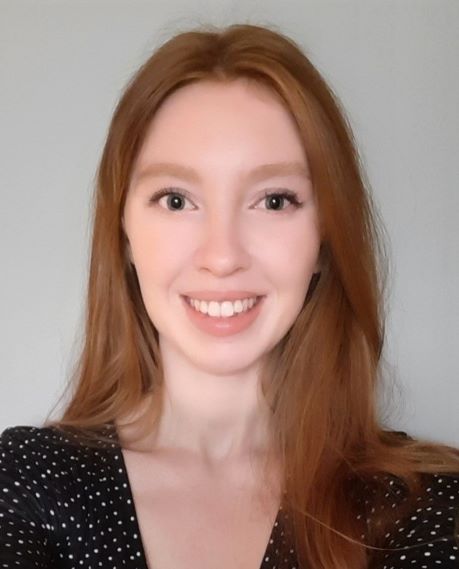 Katrina-Ray Villeneuve
Katrina-Ray Villeneuve
Katrina is a Forensic Psychology PhD student working under the supervision of Dr. Amy-May Leach. She completed her Master's of Science in Forensic Psychology at Ontario Tech. Her Master's thesis examined the ability to detect deceit at various thin slice lengths. Currently, Katrina is examining the effects of interviewer/interviewee rapport building and interpreter presence on deception detection.
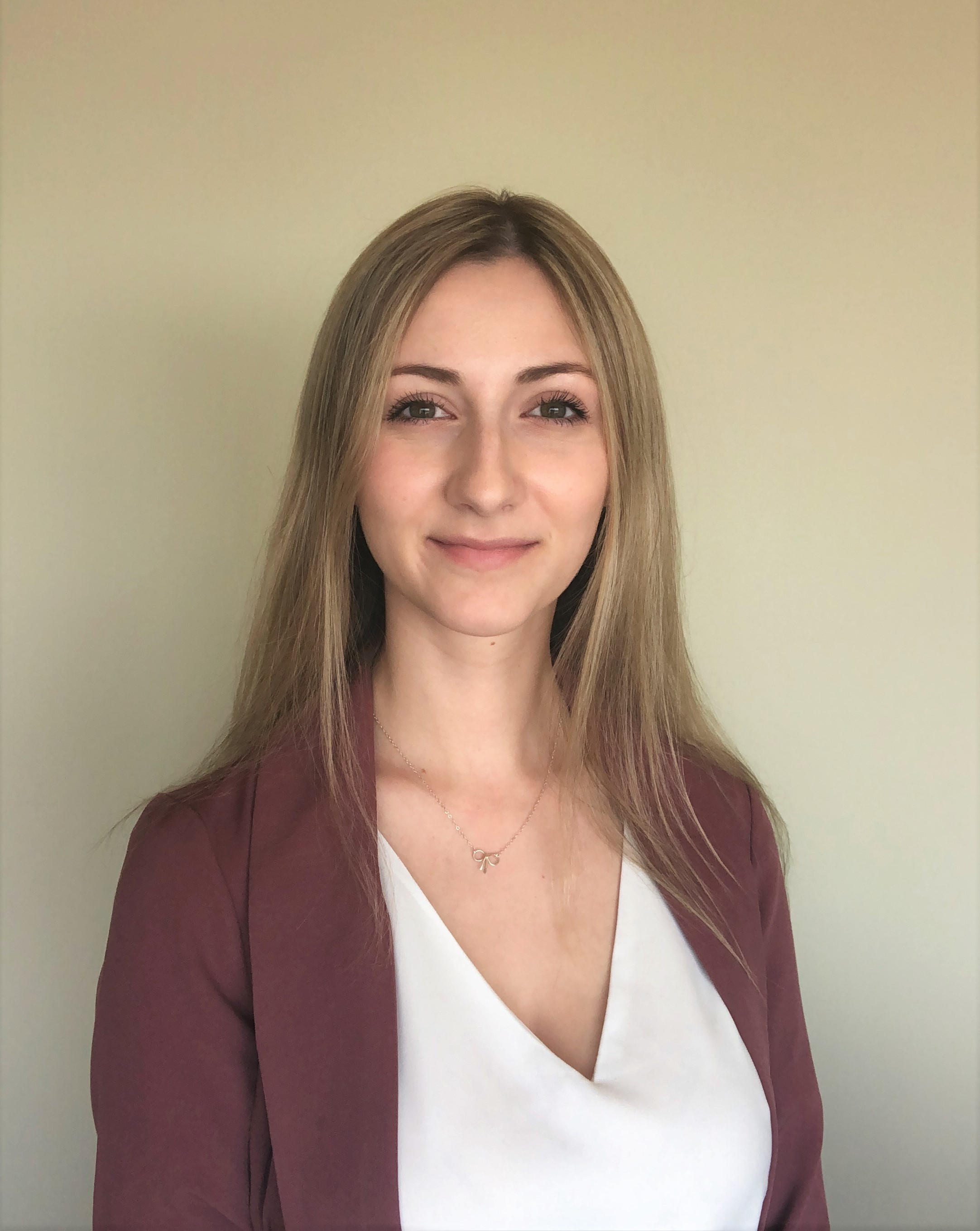 Lyndsay Woolridge
Lyndsay Woolridge
Lyndsay is a Direct Entry PhD student working under the supervision of Dr. Amy Leach. She completed her master’s degree in linguistics at York University and received her Bachelor of Arts (Honours) in linguistics from Queen’s University. Her primary research area focuses on deception detection in non-native English speakers and the implications of observer biases when making veracity judgments in legal settings. As a secondary focus, Lyndsay has conducted studies related to deception and attributions of arousal and the impact of interpreter use on deception detection during courtroom examinations.
2024
Carisa Collins, PhD, Understanding Minor Attracted Persons (supervisor: Dr. Leigh Harkins).
William Denomme, PhD, "Neuroimaging Metrics of Externalizing Disorders: Assessing Neurobiological Features of Substance Use, Withdrawal, Substance Use Disorders, and Psychopathy" (supervisor: Dr. Matthew Shane).
Cristina Ferrara, PhD, "Communicating Police-Involved Deaths: A Mixed-Methods Exploration of Canadian Police Agencies’ Twitter Strategies and Perceptions of Police", (supervisor: Dr. Karla Emeno).
Annmarie Khairalla, PhD, Examining the Role of Race in Plea Decision-Making for Defense Attorneys and Laypeople (supervisor: Dr. Leigh Harkins and Dr. Brian Cutler).
Sarah Kirkpatrick, MSc, "Consent and Sexual Assault in Heterosexual versus Same-Sex Sexual Encounters" (supervisors: Dr. Karla Emeno and Dr. Shannon Vettor).
Funmilola Ogunseye, MSc, "Are we where we should be? Assessing investigative interviewing practices and training of officers in the Force Criminal Investigation Department of the Nigeria Police Force" (supervisor: Dr. Joseph Eastwood).
2023
Chelsea Blake, MSc, Dual-Task Interference and Its Influence on Deception Detection and Memory (supervisor: Dr. Amy Leach).
Jeffrey Kaplan, PhD, Development of the Interview and Interrogation Assessment Instrument (supervisor: Dr. Amy Leach).
Mari Pullman, MSc, Mapping the Developmental Trajectories of Chronic Offenders in Canada (supervisor: Dr. Karla Emeno).
2022
Carina Cardoso, MSc, #RodneyReed: A content and thematic analysis of a trending innocence campaign (supervisor: Dr. Kimberley Clow).
Christina Connors, PhD, Toward Assessing and Improving the Protective Efficacy of Canadians’ Interrogation Rights: Misinformation and Caution Comprehension (supervisor: Dr. Joseph Eastwood).
Laleh Dadgardoust, PhD, Improving Understanding of Rape Proclivity (supervisor: Dr. Leigh Harkins).
Alexandra Grave, MSc, Perceptions of Police Use of Force: The Role of Context-Specific Factors, Police Legitimacy, and Belief in a Just World (supervisor: Dr. Karla Emeno).
Cassandre Dion Larivière, MSc, The Effects of Rapport Building on Information Disclosure in Virtual Interviews (supervisor: Dr. Joseph Eastwood).
Ana Karen Espinosa Becerra, MSc, Mock Jurors’ Perceptions of Children Testifying via a Language Interpreter (supervisor: Dr. Lindsay Malloy).
Elizabeth Elliott, PhD, What Lies Beneath: An Examination of the Underlying Components of Deception Detection (supervisor: Dr. Amy Leach).
Jingyuan Sophie Li, MSc, Individuals’ Empathic Responses to Exonerees’ Emotional and Physical Suffering (supervisor: Dr. Kimberley Clow).
Lillian Rodriguez Steen, PhD, Examining Interview Ground Rules in Formal Interviews with Children (supervisor: Dr. Lindsay Malloy).
Danielle Rumschik, PhD, An Analysis of Face Matching Accuracy and Related Variables: A Meta-Analysis and Two Follow-Up Studies (supervisor: Dr. Amy Leach).
Isabelle Simard, PhD, Neural Markers of Antisocial Behaviour in Offenders and their Relationship with Risk-Factors of Offending (supervisor: Dr. Matthew Shane).
Mark Snow, PhD, Negative Emotion and Eyewitness Memory (supervisor: Dr. Joseph Eastwood).
Katrina Villeneuve, MSc, The Impact of Thin(ner) Slicing on Deception Detection (supervisor: Dr. Amy Leach).
2021
Korri Bickle, PhD, Youth Correctional Officer Orientation and Opinions on Relationships with Youth (supervisor: Dr. Carla Cesaroni).
Daniella Filoso, MSc, Parents’ perceptions of their children’s lie telling in the context of sibling relationships (supervisor: Dr. Lindsay Malloy).
Rebecca Fisico, MSc, Why Would Someone Send Me That?! Exploring the Prevalence, Contexts, Motivations, and Predictors of Sending Unsolicited Sexual Images (supervisor: Dr. Leigh Harkins).
Siobhan Green, MSc, Perceptions of Crime Changes, Well-Being, and Personal Safety During the COVID-19 Pandemic (supervisor: Dr. Karla Emeno).
Lindsay Groat, PhD, Influencing Motivation to Empathize in Individuals with Heightened Psychopathic Traits: Neural and Behavioural Assessment of Empathizing with Others (supervisor: Dr. Matthew Shane).
Karli Hamilton, MSc, Willingness to Help: How the Portrayal and Perception of a Wrongfully Convicted Individual Affects People’s Willingness to Help Exonerees (supervisor: Dr. Kimberley Clow).
Taya Henry, MSc, A Content and Thematic Analysis of Reddit Discussions about When They See Us (supervisors: Dr. Kimberley Clow, Dr. Lesley Zannella).
Ryan Lahay, MSc, Measuring Cues to Deception: A Multitrait-Multimethod Analysis (supervisor: Dr. Amy Leach).
2020
Renee Bencic, MSc, Impact of Terrorism Awareness Training on Civilian Likelihood to Report Pre-Incident Behaviours (supervisor: Dr. Karla Emeno; committee member: Dr. Leigh Harkins).
Sara Caro Arroyave, MSc, School Resource Officers: Interrogation training, developmental knowledge, and questioning practices (supervisor: Dr. Lindsay; committee member: Dr. Karla Emeno).
Femi Carrington, MSc, Increasing Experience Sharing Through Regulation Instructions (supervisor: Dr. Matthew Shane).
Quintan Crough, MSc (supervisor: Dr. Joe Eastwood; committee member: Dr. Karla Emeno).
Kristina Shatokhina, MSc, Body-Worn Camera Footage in the Courtroom: Recidivism and Treatment Attrition among Persons who Sexually Offend (PSOs): Applying the Integrated Risk Assessment and Treatment System (IRATS) (supervisor: Dr. Leigh Harkins).
Rangina Wardak, MSc, An Examination of the Effects of BWC Expert Testimony on Perceptions of Police Officer Trustworthiness and Verdicts (supervisor: Dr. Karla Emeno; committee member: Dr. Brian Cutler).
